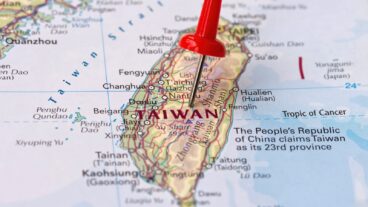Israeli farmers have created new varieties of the pitaya fruit that are tastier and sweeter than the original exotic fruit species. Although already a popular fruit in Asia and South America, the rest of the world hasn’t really incorporated this vitamin-rich fruit into its diet.
Now, Israeli growers – who are known for their innovative farming methods – hope to change the pitaya’s status.
The pitaya fruit, or more commonly known as dragon fruit, originated in the South American jungles. French colonialists introduced it to Vietnam about a century ago. And while competing with the Vietnamese dragon fruit pitaya is tough because it is so cheap, the Israeli farmers believe that they have an advantage – their pitayas are bursting with flavor.
“We developed varieties that are nice in shape and better in taste, and that is what we are looking for,” Yossi Zaphrir, a farmer and managing director of Top Eden Fruits, told The Media Line.
Working with Ben Gurion University of the Negev, Israeli growers took this beautiful cactus fruit and improved its taste, color and shelf life to compete in the lucrative European markets. New Israeli varieties like the “Golden” and the “Venus” come in shades of purple and red, instead of the traditional white pulp.
Pitaya fruits are highly concentrated with Vitamin C, minerals and boasts of high fiber content.
Israeli farmers are known for taking exotic fruits and turning them into marketable products. First it was the avocado and kiwi. Today, it’s the pitaya.
“There’s a trend all over the world now to eat exotic fruits for a few reasons. One is that they are very healthy. They also have a lot of vitamins and antioxidants, especially the red varieties,” said Zaphrir.
The new pitaya varieties will be on show at the Agro-Mashov agriculture conference in Tel Aviv in March. Representatives from about 110 countries are expected to attend this year’s event.
“There will also be a lot of Palestinians, Jordanians and Egyptians, and it will be a celebration for the whole region,” Haim Alush, the chief executive officer of Agro-Mashov, told The Media Line. “We believe that if the whole world can meet this challenge of food production that we will be able to prevent wars.”












